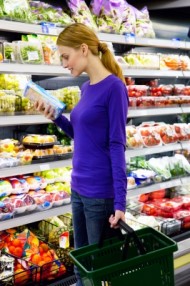Lifestyle Practices
By looking closely at someone’s lifestyle, we discover their attitudes, values, and worldview. A person who values success and recognition would typically have a lifestyle that displays material wealth and status. One who values green-living would focus on simplifying their life, consuming less natural resources, and purchasing environmentally friendly products.
It has been thoroughly explained in the book Choices of Now that defining success in our lives through our current paradigm of material wealth and fame will not get us the happiness we truly want. As a case in point, the 2012 Happy Planet Index, which measures the extent to which countries deliver long, happy, and sustainable living to their citizens, ranked Singapore 90th out of 151 countries. On the other hand, The Straits Times reported in August 2012 that Singapore is number one in the world for GDP per capita, according to the Wealth Report released by Knight Frank and Citi Private Bank. The belief that more money equates more happiness is thus clearly disproved.
By bringing our awareness to what we buy, we can make conscious life-supportive decisions before buying. We can focus on reducing, re-using, and recycling; yet there are certain things we can even cut off our shopping lists and lives.
Whenever we buy lifestyle goods, we need to ask ourselves several questions. One of them is, “Do I need this or do I want it?” As many products are toxic to our bodies and the environment, another question would be, “How is this product made, and what is it made of?” It is likely that when we buy something of great value at a very low price, it comes at the expense of someone’s livelihood. So, yet another question to ask ourselves is, “How is this product traded and how are the people (farmers, craftsmen, factory workers, etc.) involved in the manufacturing process being treated?” (To read up more on this topic, we recommend the book Ecological Intelligence, by Daniel Goleman.)
Here is a short list of websites you can visit to get some basic knowledge on ethical production, manufacturing, and trading:
www.goodguide.com—for evaluations of health, environmental, and social impacts of products;
www.fairtraderesource.org—an information hub to support the fair-trade movement;
www.cosmeticsdatabase.com—the database of ingredients in cosmetics and personal care products;
www.echa.europa.eu—for chemicals legislation regarding human and environmental health.
The things we collectively buy determine many aspects of our society: the kinds of business practices, professions, and studies that are in demand, our industries and their impact on economy; also, the human resources we mobilise and use, the natural resources we extract from the earth, and the animal and plant species we support or kill. To a large extent, the kind of world we live in is determined by the things we choose to buy. Naturally, when we collectively stop buying or investing in certain things, the industries that supply those things will have to reinvent themselves.
Based on the 2007/2008 Monthly Household Expenditure Survey in Singapore, here are the top 8 biggest ticket items:
- housing and utilities (22.4%): the bigger the house, the higher the cost of maintenance and utilities;
- transport (15.8%): motor car, petrol, maintenance, and other vehicle expenses (e.g. parking fees, road taxes, etc.) take up 69% of this expenditure;
- food serving services (13.5%): hawker centres and food courts, restaurants and fast foods take up 97% of this expenditure;
- recreation, telephone, and Internet services (12.3%): audio and visual equipments, games and toys, paid television and mobile-phone services take up 43% of this expenditure;
- food (7.6%): meat, seafood, and dairy/eggs take up 45% of this expenditure;
- educational and tuition services (7.2%): private tuition takes up 26% of this expenditure;
- clothing, personal care and personal effects (6.6%);
- health cost (5.3%): medical products, outpatient services take up 70% of this expenditure.
Looking at the list above, the size of the house we choose to live in, how we travel and commute, what and where we eat, how we entertain and communicate, how we educate our children, how we take care of our health, and how we dress and groom ourselves take up 91% of our monthly expenditure.
Here are some suggestions that will help to drastically reduce stress and pressure in life, to facilitate our transition from a work centred to a relationship-spiritual-health centred life. These suggestions will also reduce our impact on the environment:
- downsize and simplify your home;
- downsize or sell your car;
- cook at home and progressively switch to a plant-based diet; it is also a good way to increase your bonding and caring time with loved ones;
- stop chasing new electronic, communication, and computing devices; spend more time physically connecting with people, artistic performances, and nature;
- increase your coaching time on your children’s studies;
- strengthen your overall health by focusing on whole plant-based food; do more meditation and exercises; aim to be free from doctors and pharmaceutical drugs;
- focus on developing your inner beauty and confidence; de-anchor yourself from cosmetics, clothing, and accessories; these things focus on your external beauty;
- take the challenge to free yourself from the addiction of shopping for 90 days; develop a meaningful hobby or interest;
- clear out your storeroom; let your unused stuff be of great joy and use to poor people (click here to see what you can do with things you no longer use).
We recommend the following books for more on adopting a green, simpler lifestyle:
- The Rough Guide to Green Living (2009), by Duncan Clark;
- Green, Greener, Greenest: a Practical Guide to Making Eco-Smart Choices a Part of Your Life (2008), by Lori Bongiorno;
- Less is More (2009), by Cecile Andrews and Wanda Urbanska;
- The Joy of Less (2010), by Francine Jay;
- The Plant-Powered Diet (2012), by Sharon Palmer;
- Cleanse & Purify Thyself (2007), by Richard Anderson.
